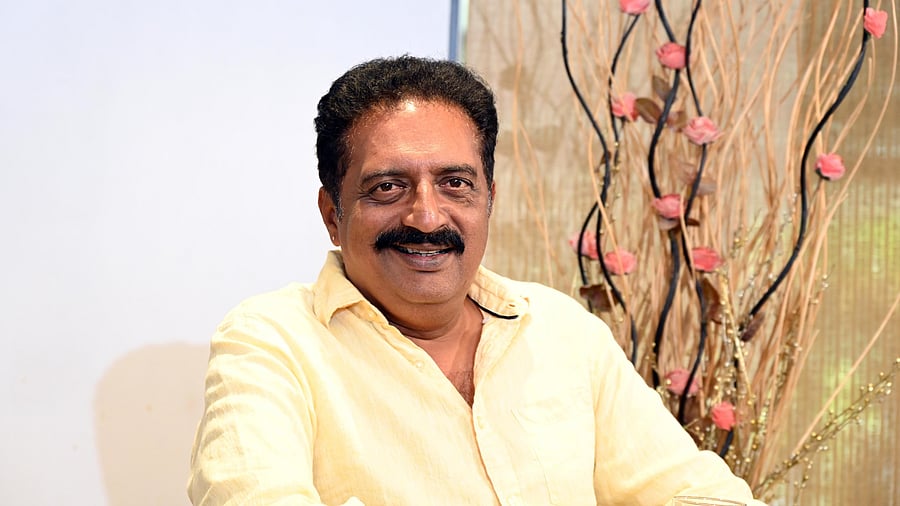
DH Metrolife interview of Film Actor Prakash Raj in Bengaluru on Saturday.
Credit: DH Photo/B K Janardhan
Bengaluru: The Bengaluru International Short Film Festival (BIFFes) last year witnessed Utsav Gonwar’s poignant tale of a boy’s unfulfilled dream. It was set against the backdrop of the atrocities migrant workers faced during the Covid 19 nationwide lockdown. Photo premiered to critical acclaim. A year later, the film is all set for theatrical release.
Prakash Raj who is presenting the film through Nirdigantha, an incubation theatre, talks to Showtime about what drew him to the film, Utsav’s craft and the politics in Kannada film narratives.
What did you think about ‘Photo’?
In life, there are certain wounds we should not forget, because it’ll come back to us, some have to haunt us so it does not happen again. ‘Photo’ is a wonderful documentation — as Chaplin once said, life is a comedy in a long shot and tragedy in a close-up. Utsav, for his age to find his identity as a director and to document universal pain, universal helplessness and insensitivity amongst us is laudable. The film questions our privileged positions and it hits our conscience. That’s what pulled me to the film.
How did you come across the film?
I like this thing about myself. When young filmmakers make a film, they feel, “I should show it to Prakash sir.” I think I have given them some hope that I will understand their film. When I watched the film, within the first 15-20 minutes, I was moved. The first thing that occurred to me was, why am I seeing it so late. The film has found so much support from the journalists. They have already watched it and are now happy someone is releasing it. I’m happy KRG came in, the moment I asked them. Looking at Dhananjaya, Hemanth, Pawan and Mansore say they will stand by me, I’m happy the film is gaining traction. Let’s see how the people see it. The success of the film is when it reminds us of our insensitivity and makes us realise that another young filmmaker has arrived.
What are some scenes that touched you personally?
A lot of scenes. The innocence of the people. How a system makes people so helpless. It reminds me of a farmer who decides to die by suicide in a field, looking at the horizon and realising there’s nobody for him. Or this boy, his dream — as my friend put it, I’ll never be able to see Vidhana Soudha the same way again. To see a child, to see a person from a village, who wants to take a photograph in front of the building which represents the system. The way the mother tears the picture of the building towards the end will haunt me for a long time. Even the pace of the film, the slowness haunts me more. There is a reason for the pace, there is a reason why those frames linger. It demands you to consume this truth.
What do you think about the politics in Kannada films?
The greatest works of art have only come out during times of crisis. This young boy saying, art has to say something, it has to document the thought process, the perception — we see very less of such Kannada films. But young filmmakers today are coming up with such films. If we look at ‘Daredevil Mustafa’ or ‘Gantumoote’, ‘Thithi’ and Mansore’s films, there is an attempt to talk about the politics and show the reality. More films like this should come out to bring in renaissance and an evolution of perception of change.
What are your plans with Nirdigantha?
We will be producing and promoting films as well. Nirdigantha is not just about theatre, it’s for poetry, art, music and cinema as well. I plan on announcing a film soon.
You have strong political ideologies and you work across industries, how do you balance everything?
Well, you have to pay the price for what you are. I would like to be known for what I am than a fellow who managed to survive. I’m at a stage where I can afford to lose. It may not be the same with everybody, but I’ve been like this from the beginning. By being afraid, by being cowed down and silent, you may get away but the truth will haunt you someday. Be prepared when it’s chiseling you to take that pain and to put your foot down and I assure you that one day you will be a happier.